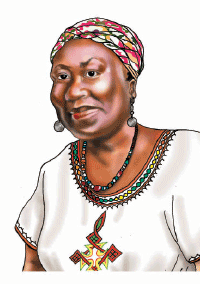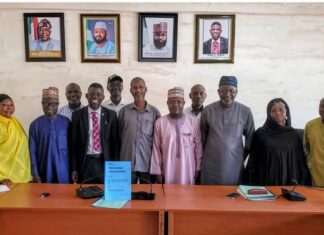The sentiment of some Nigerians concerning the ongoing petrol shortage in the country is that it is one too many; furthermore, it is difficult for it not to be seen as some kind of punishment, whether intended or not, for the way the country voted in the last elections. Most of us would have personal stories to tell about the inconveniences we had to suffer, some of them grievous, because of this situation, and I have mine as well. Its severity, I must say, also caught me by surprise. One had thought that we had forever put behind us the days of queuing for five, six hours at the petrol station or of having fuel being sold on the black market for up to five hundred Naira per litre. It was a real shock, therefore, when a young man with a jerry can along the Ibadan-Ife road insisted on nine thousand Naira for a twenty-litre jerry can of petrol. I chose instead to travel by public transport to Lagos from Ife, not because I did not think that those people who queued for many hours to buy the commodity deserved to be remunerated for their time, but because I just felt totally revolted by the whole situation.
So, what happens now? Someone or some people have inflicted varying degrees of hardship upon Nigerians through their action or inaction, and absolutely nothing is going to happen? Nobody is going to be held accountable for the effect of people’s decreased productivity on our economy; for the interview appointments and flights missed and the consequences that had for such individuals; for the deaths of sick people who could not be rushed to the hospital because there was no transportation. I know I am asking rhetorical questions here; of course, absolutely nobody will be held accountable. When last did the present administration make anybody face the consequences of their actions, no matter the grievousness on the lives of the general populace?
One need not go too far to seek the underlying reasons for the failure or inability of government to pay the fuel marketers the subsidy required for the importation of fuel into the nation; and it is the same reasons that workers across the nation are being owed several months of salaries: the recently held elections. Many of the candidates as well as their political parties spent money for their campaigns as if there would be no tomorrow; tomorrow has now arrived, reality has dawned on us all, and the blame game has begun. The Minister of Finance has asked Nigerians to hold governors responsible for the arrears of salaries owed in almost all the states of the Federation. Unfortunately, she has not told us who to hold responsible for the fuel shortage and the suffering it continues to inflict upon us as Nigerians. And it just struck me that this suffering is not merely physical; it is psychological as well. Many of us who have contact with people from other countries know how it feels when they look at you with that air of bewilderment and say: “But you are among the largest producers of petrol in the world!” It is a statement that shrinks you; it almost reduces your humanity. They are telling you something is wrong with all of you in your country, leaders and the led alike; you have so much in terms of resources, and yet look at the quality of your lives!
And they are right! How one hundred and seventy million people allow themselves to be governed with such impunity and to be so constantly dehumanized, is truly difficult to comprehend and continues to bewilder. Therefore, a very important task before us Nigerians, and that has often been pointed out by foreigners, is to learn how to demand accountability from our leaders. People must be held accountable. Of course, it would be wonderful if those in authority themselves are convinced of this fact and thus see their role as serving the interests of the people; however, should they fail to do so, the people have a duty, a responsibility and a right to require it of them. That is, we should demand that “heads should roll” when we see unacceptable levels of negligence or failure on the part of those who have been entrusted with the management of our resources, along with the necessary power and authority to order our lives beneficially.
I am currently participating in a forum on leadership and, as we were reminded, a big part of human existence is shrouded in uncertainty, and it is in this context of uncertainty (where markets may crash or disasters break out) that leaders are called upon to make decisions. It definitely is challenging to plan for uncertainty. However, what we have discussed here is not situated in that realm, and that is why it is right and proper to demand that heads roll when there is failure. The fuel scarcity issue is one of impunity – a blatant refusal to care about and plan for the people’s welfare (even without bringing in the matter of the gangrene of corruption and how that impacts upon the oil sector). And as if to add insult to injury, people who have failed us are about to leave office with generous severance packages. Instead, some heads should roll before this administration winds up – but how do you ensure it would be the right ones?













